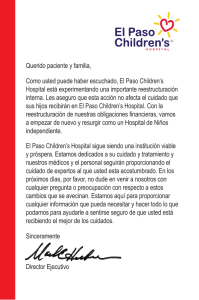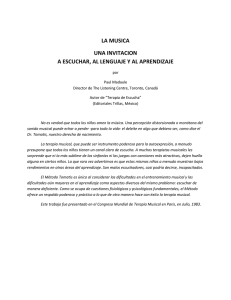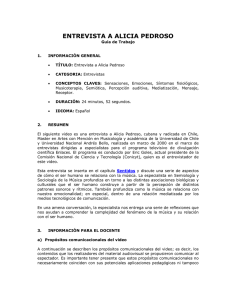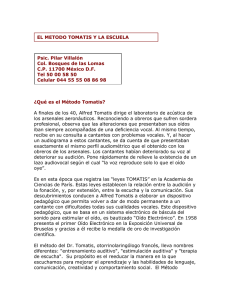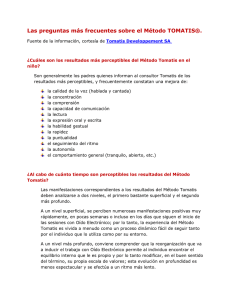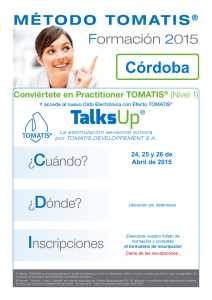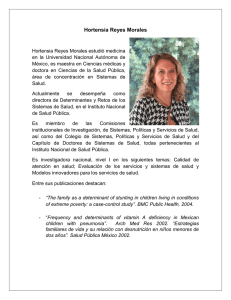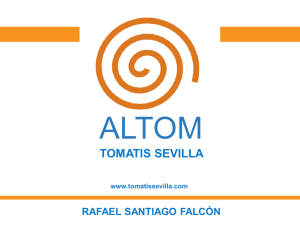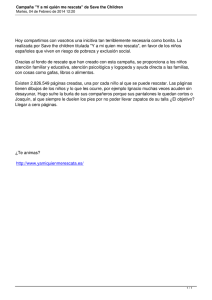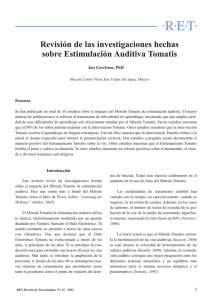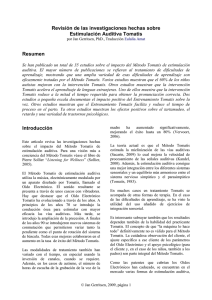Comparación con Investigaciones
Anuncio
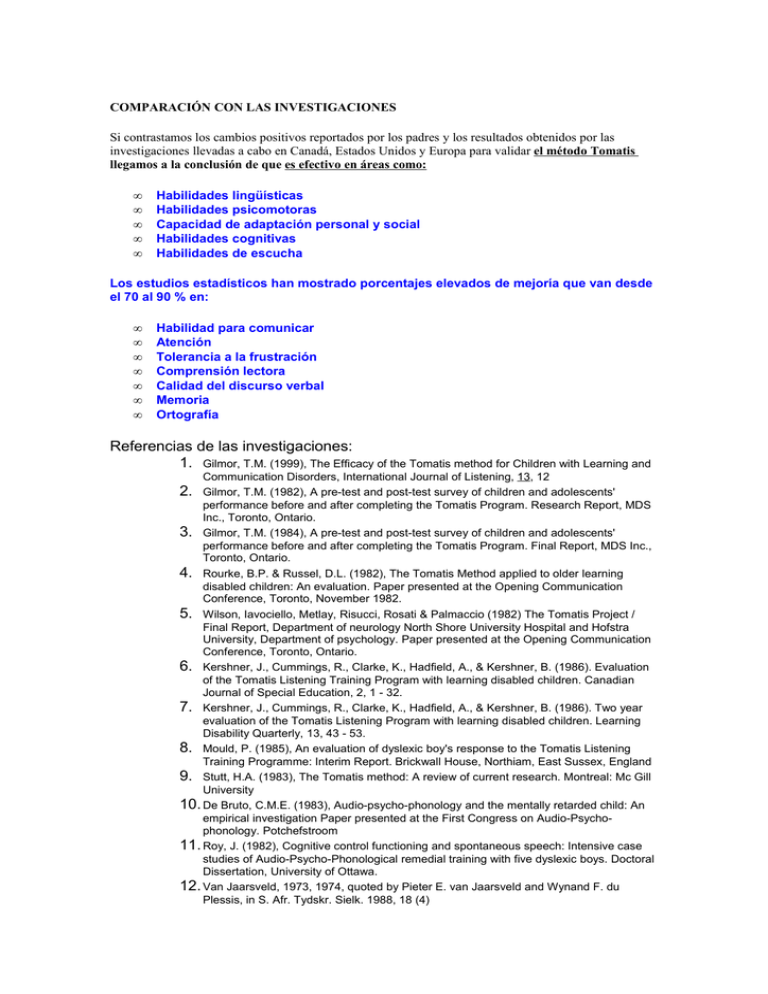
COMPARACIÓN CON LAS INVESTIGACIONES Si contrastamos los cambios positivos reportados por los padres y los resultados obtenidos por las investigaciones llevadas a cabo en Canadá, Estados Unidos y Europa para validar el método Tomatis llegamos a la conclusión de que es efectivo en áreas como: • • • • • Habilidades lingüísticas Habilidades psicomotoras Capacidad de adaptación personal y social Habilidades cognitivas Habilidades de escucha Los estudios estadísticos han mostrado porcentajes elevados de mejoría que van desde el 70 al 90 % en: • • • • • • • Habilidad para comunicar Atención Tolerancia a la frustración Comprensión lectora Calidad del discurso verbal Memoria Ortografía Referencias de las investigaciones: 1. Gilmor, T.M. (1999), The Efficacy of the Tomatis method for Children with Learning and Communication Disorders, International Journal of Listening, 13, 12 2. Gilmor, T.M. (1982), A pre-test and post-test survey of children and adolescents' performance before and after completing the Tomatis Program. Research Report, MDS Inc., Toronto, Ontario. 3. Gilmor, T.M. (1984), A pre-test and post-test survey of children and adolescents' performance before and after completing the Tomatis Program. Final Report, MDS Inc., Toronto, Ontario. 4. Rourke, B.P. & Russel, D.L. (1982), The Tomatis Method applied to older learning disabled children: An evaluation. Paper presented at the Opening Communication Conference, Toronto, November 1982. 5. Wilson, Iavociello, Metlay, Risucci, Rosati & Palmaccio (1982) The Tomatis Project / Final Report, Department of neurology North Shore University Hospital and Hofstra University, Department of psychology. Paper presented at the Opening Communication Conference, Toronto, Ontario. 6. Kershner, J., Cummings, R., Clarke, K., Hadfield, A., & Kershner, B. (1986). Evaluation of the Tomatis Listening Training Program with learning disabled children. Canadian Journal of Special Education, 2, 1 - 32. 7. Kershner, J., Cummings, R., Clarke, K., Hadfield, A., & Kershner, B. (1986). Two year evaluation of the Tomatis Listening Program with learning disabled children. Learning Disability Quarterly, 13, 43 - 53. 8. Mould, P. (1985), An evaluation of dyslexic boy's response to the Tomatis Listening Training Programme: Interim Report. Brickwall House, Northiam, East Sussex, England 9. Stutt, H.A. (1983), The Tomatis method: A review of current research. Montreal: Mc Gill University 10. De Bruto, C.M.E. (1983), Audio-psycho-phonology and the mentally retarded child: An empirical investigation Paper presented at the First Congress on Audio-Psychophonology. Potchefstroom 11. Roy, J. (1982), Cognitive control functioning and spontaneous speech: Intensive case studies of Audio-Psycho-Phonological remedial training with five dyslexic boys. Doctoral Dissertation, University of Ottawa. 12. Van Jaarsveld, 1973, 1974, quoted by Pieter E. van Jaarsveld and Wynand F. du Plessis, in S. Afr. Tydskr. Sielk. 1988, 18 (4)
